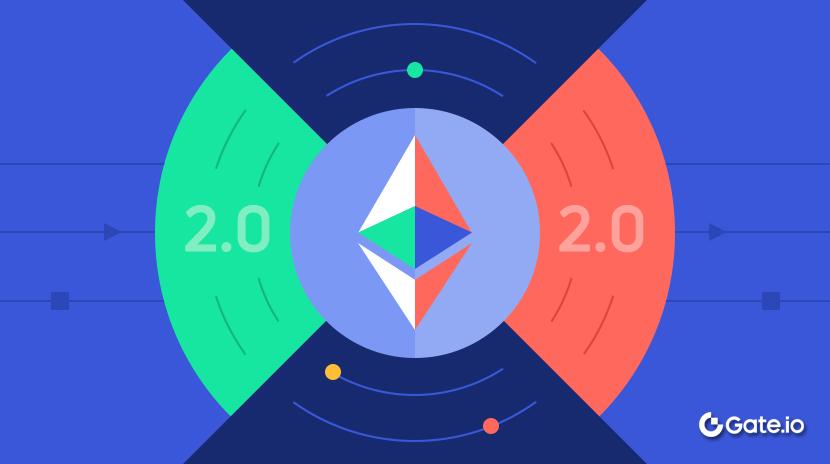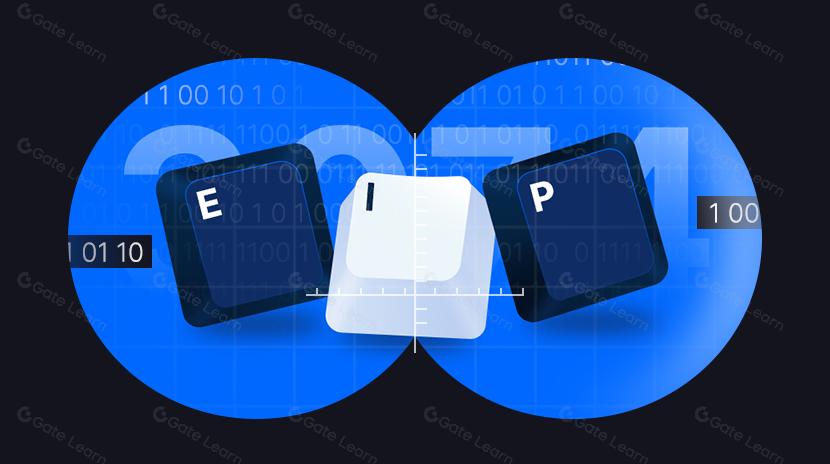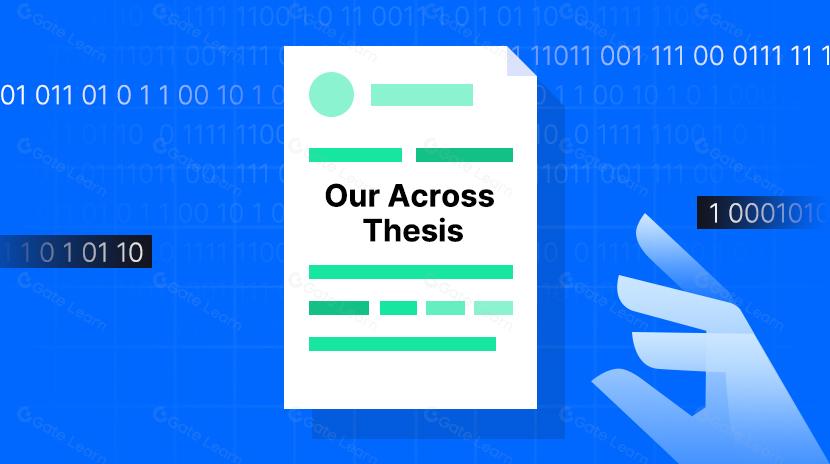Consensys

What Is Consensys?
Consensys is a technology company focused on the Ethereum ecosystem, providing wallets, network interfaces, developer tools, and layer 2 solutions for users, developers, and enterprises. The official spelling is commonly "ConsenSys," but for consistency, this article uses "Consensys."
Founded in 2014 by Ethereum co-founder Joseph Lubin, Consensys has played a major role in the long-term development of the Ethereum ecosystem. Think of it as a producer of both infrastructure and applications: on the front end, it offers wallets that let users interact with blockchain services, while on the back end, it provides APIs enabling applications to connect to the network. Additionally, Consensys has launched layer 2 networks to boost transaction speed and reduce costs.
Why Is Consensys Important to the Ethereum Ecosystem?
Consensys is essential because it bridges users, applications, and the Ethereum network, making Ethereum more user-friendly, robust, and accessible.
For users, MetaMask acts as a "digital key," allowing access to decentralized applications (DApps) via browser or mobile. For developers, Infura serves as a "cloud-based pipeline," providing stable and reliable access to Ethereum. For scaling, Linea processes large volumes of transactions off-chain on layer 2, sending results back to the mainnet to ease congestion and lower fees. This makes it easier for applications like games, DeFi protocols, and NFTs to launch and operate efficiently.
What Are the Core Products of Consensys?
Consensys' flagship products include MetaMask, Infura, Truffle, and Linea, alongside audit and enterprise blockchain services.
- MetaMask: A wallet for browsers and mobile devices, enabling account management and transactions.
- Infura: A "node service" that abstracts complex blockchain connection and synchronization into API calls—similar to using cloud infrastructure.
- Truffle: A development toolkit that helps compile, test, and deploy smart contracts (blockchain programs that execute rules automatically).
- Linea: An Ethereum layer 2 network based on zero-knowledge proofs, offering lower fees and faster transaction finality.
- Enterprise solutions include Consensys Quorum (private blockchain for enterprises), auditing services, and compliance support.
How Do You Use Consensys' MetaMask?
Using MetaMask involves a few key steps: downloading and installing, creating or importing a wallet, depositing assets, and connecting to DApps.
- Download the MetaMask extension or mobile app from the official website or app store. Verify the publisher and version to avoid counterfeit versions.
- Create or import a wallet. Securely back up your "seed phrase" (a series of English words that serve as your master key). Do not take screenshots or store it in plain text on cloud storage; write it down offline and keep it in separate locations.
- Purchase assets (e.g., ETH) on Gate, then withdraw by selecting the network and entering your MetaMask address. Ensure the network matches your MetaMask network to prevent asset loss.
- Open a DApp or supported website that connects to wallets. Click "Connect Wallet"—MetaMask will prompt you for authorization. Only approve on trusted sites; verify URLs and contract addresses to avoid phishing.
- When swapping assets, review exchange rates, slippage, and gas fees (the transaction fee paid to the network). Fees may spike during peak times—transact during off-peak hours for lower costs.
How Do Infura and Developer Tools from Consensys Empower DApps?
Infura provides stable network access via API so DApp developers don't need to run or maintain their own full nodes; Truffle supports the entire smart contract lifecycle from development to deployment.
Developers can think of Infura as a ready-made highway entrance for sending transactions and read requests to Ethereum without building infrastructure themselves. Truffle acts as a toolbox for compiling, testing, and deploying contracts onto specified networks.
A typical workflow for developers includes:
- Creating a project in Infura to obtain a project ID and secret key for authentication and rate management.
- Configuring your backend with an RPC (Remote Procedure Call) endpoint provided by Infura for sending transactions and reading blockchain data.
- Using Truffle or similar tools to compile and test contracts, deploy them to testnets or mainnet, then connect to frontend interfaces for wallet-based interaction—all without running your own nodes.
How Does Consensys' Linea Work?
Linea is an Ethereum layer 2 network based on zero-knowledge proofs, using zkEVM (a zero-knowledge solution compatible with the Ethereum Virtual Machine). It batches transactions on layer 2 and generates cryptographic proofs that are verified by the mainnet, which doesn't need to recalculate each transaction—leading to lower costs and faster confirmations.
Zero-knowledge proofs can be understood as methods that "prove something is true without revealing the details," enabling efficient validation. Linea is fully Ethereum-compatible and supports common tooling and wallets. Use cases include high-frequency DeFi trading, batch NFT issuance or transfers, cross-border payments, and on-chain payments.
Adoption trends (source: L2BEAT) show that in late 2024, leading layer 2 networks are seeing growth in total value locked (TVL) and activity levels, with developers increasingly deploying on layer 2 solutions.
How Does Consensys Support Enterprises and Compliance?
Consensys offers private or permissioned blockchains, auditing, and compliance services to help financial institutions and large organizations pilot blockchain projects in controlled environments.
For example:
- Enterprise blockchains like Consensys Quorum support permission management and privacy features—ideal for supply chain or financial settlement use cases.
- Audit and compliance support identifies smart contract risks and process vulnerabilities before launch, helping meet regulatory requirements.
- In recent years, central banks and financial institutions have partnered with Consensys on pilots involving CBDCs (central bank digital currencies) and tokenized assets. Consensys often acts as the technology provider.
- On compliance: blockchain firms work closely with regulators, monitor policy changes, and adapt their frameworks as needed.
What Are the Risks and Fees When Using Consensys Products?
Key risks and costs are associated with private key security, authorization risks, network fees, and regulatory changes—users must be aware and take precautions.
Security: If your seed phrase or private key is leaked, assets can be irreversibly lost. Always back up offline; beware of fake wallets and phishing websites. Authorization: When connecting to DApps, check contract addresses and permission scopes—avoid granting "unlimited approvals" which may pose risks. Fees: Blockchain transactions require gas fees, which rise during periods of congestion; swaps incur slippage and platform fees. Infrastructure services like Infura have quotas or usage-based billing—developers should evaluate these costs. Compliance: Product features or availability may change due to policy shifts—stay updated via official announcements and local regulations.
How Do You Interact with the Consensys Ecosystem via Gate?
The process can be summarized as "Buy – Withdraw – Connect – Interact" in four steps:
- Purchase assets (e.g., ETH or stablecoins) on Gate; ensure account security and KYC status to avoid withdrawal limits.
- On Gate's deposit/withdrawal page, select your target network (Ethereum mainnet or Linea if available), input your MetaMask address matching the network, check withdrawal fees and estimated arrival times.
- If transferring assets from Ethereum mainnet to Linea, use the official Linea bridge or a reputable cross-chain bridge; carefully review bridge fees and destination addresses.
- On your target network, open a supported DApp or MetaMask Portfolio page; connect your wallet to start interacting. If gas fees are high, consider transacting during off-peak times or using layer 2 networks for cost savings.
Key Takeaways of Consensys
Within Ethereum's ecosystem, Consensys fulfills three major roles: entry point (MetaMask enables seamless DApp access), infrastructure channel (Infura & Truffle accelerate development), and scaling solution (Linea reduces costs & increases speed). Beginners can start by setting up a wallet, buying assets on Gate, withdrawing them onto relevant networks, then exploring layer 2 solutions and various applications. Throughout this process, prioritize private key security, prudent authorization management, fee assessment—and stay informed about ecosystem trends and regulatory updates.
FAQ
What Is the Relationship Between ConsenSys and Ethereum?
ConsenSys is an independent company within the Ethereum ecosystem—not its “owner.” Ethereum is maintained by its community; ConsenSys is one of its main infrastructure builders focused on developing core tools and applications. The two have a collaborative relationship—ConsenSys empowers Ethereum through products like MetaMask and Infura.
Why Are MetaMask and Infura So Widely Used?
MetaMask is the most popular wallet for convenient asset management and seamless transaction experiences. Infura is known as the most reliable node service—lowering DApp developers’ costs by eliminating the need for self-hosted nodes. Both are developed by ConsenSys and have become foundational infrastructure for Ethereum due to their high availability and ease of use.
Why Is ConsenSys' Linea Highly Regarded?
Linea is an Ethereum layer 2 scaling solution developed by ConsenSys using zero-knowledge proof technology to boost transaction speeds while reducing costs. Compared to mainnet usage, Linea can cut transaction fees by over 90% while preserving Ethereum-level security—making it ideal for high-frequency trading and DApp deployment.
How Can Regular Users Access ConsenSys Products?
The most direct way is downloading the MetaMask wallet for account management and transactions. To try layer 2 networks like Linea, purchase tokens on Gate then bridge them over via an official bridge solution. Developers can quickly start projects with Infura’s free API without needing their own node setup.
What Risks Should You Watch Out for When Using ConsenSys Products?
MetaMask wallet users are solely responsible for private key management—losing your key means losing your assets permanently. Cross-chain transfers carry bridging risks—always use official channels. While Linea inherits Ethereum’s security guarantees as a new network it may still present technical upgrade risks; only invest what you can afford to lose.
Related Articles

What Is Ethereum 2.0? Understanding The Merge

Reflections on Ethereum Governance Following the 3074 Saga
